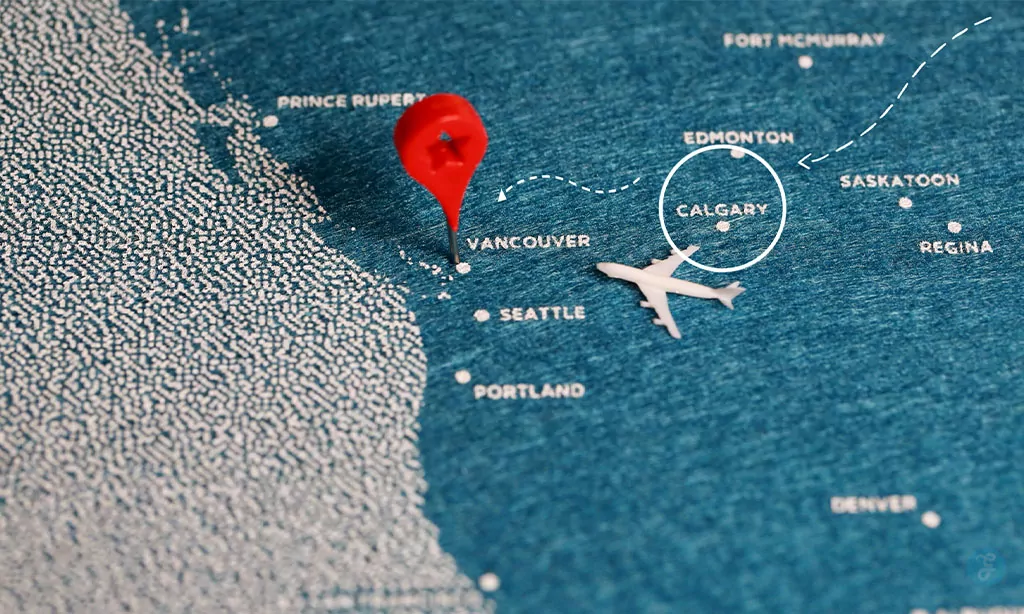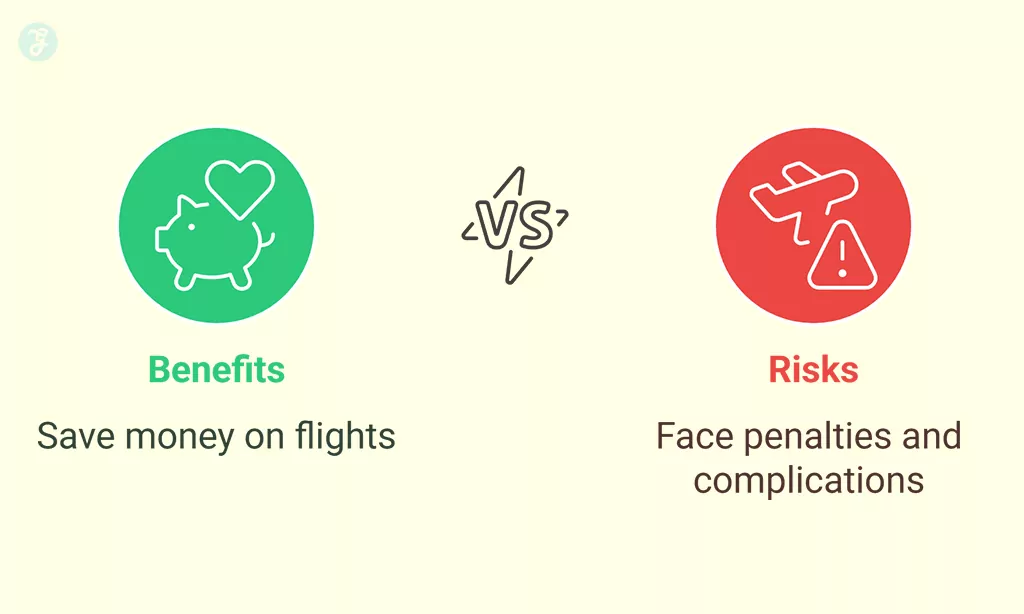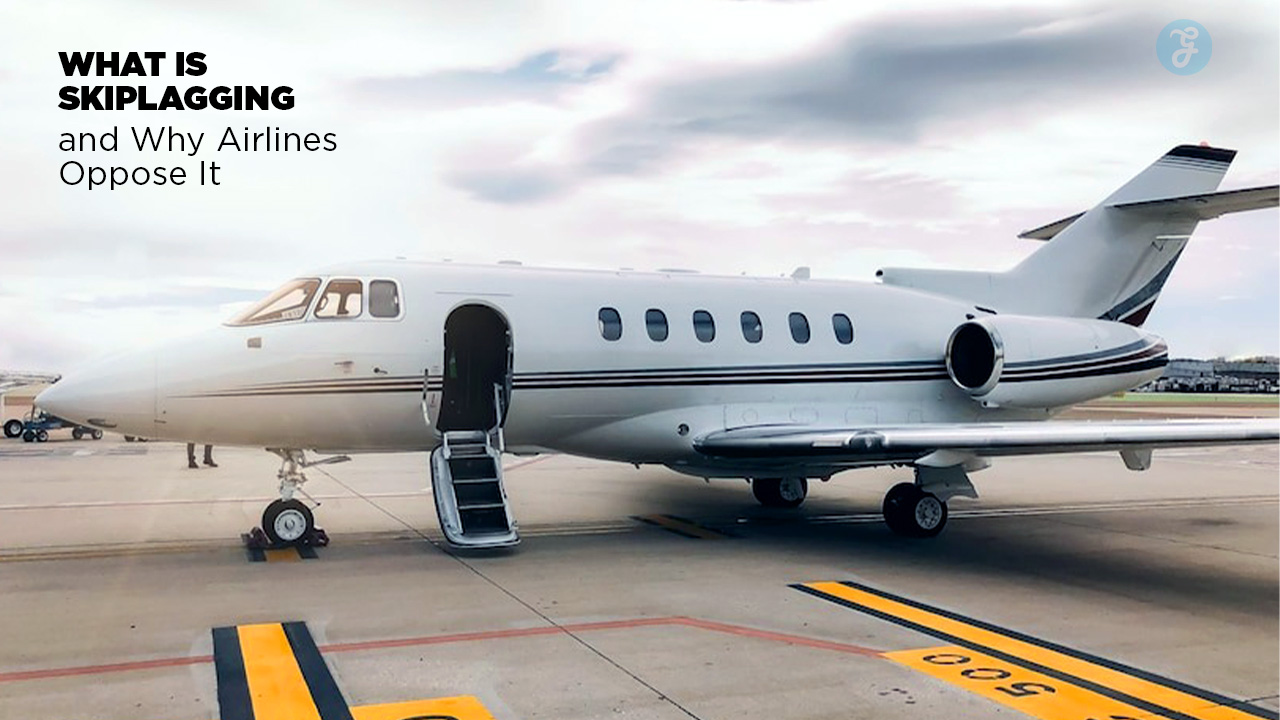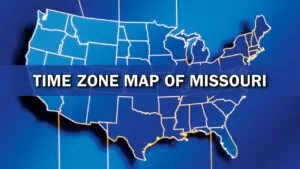Have you ever found airline ticket prices confusing? Sometimes, flying directly to your destination seems more expensive than longer routes with stops along the way. Enter skiplagging, a cost-cutting travel hack that savvy travelers use.
This practice has stirred much debate between passengers and airlines. What is skiplagging, you ask? It’s booking a flight with at least one stopover, but leaving the plane during the layover because that city is where you really want to go.
Airlines like American, Delta, Southwest, and United have rules against this tactic. They say it messes with their pricing and seat planning. Our guide dives into why skiplagging draws airline ire and how it affects your journey.
We also explore safer ways to find cheap flights without breaking any rules. Keep reading for inside tips on budget-friendly travel!
Key Takeaways
- Skiplagging is when travelers book a flight with a layover and leave at that stop, saving money by not flying the last segment. This action violates most major airlines’ rules.
- Airlines like American, Delta, Southwest, and United lose revenue from skiplagging because it disrupts their pricing strategies and seat planning. They might charge fees or take away loyalty benefits from travelers who do this.
- While skiplagging isn’t illegal, it brings up ethical issues. It can cause problems like canceled return flights or complications with checked luggage for passengers.
- Alternatives to skiplagging include using flight search engines that find hidden-city tickets, being flexible with travel dates, signing up for alerts on deals, and booking in advance during sales.
- Understanding airline tactics can help flyers make better choices. Tactics include advertising low initial fares but adding hidden fees and creating scarcity by showing limited seats available to pressure quick bookings.
What is Skiplagging?

Skiplagging occurs when a traveler books a flight with a layover but skips the final leg of the journey. This method allows passengers to take advantage of lower fares that airlines offer on multi-stop flights.
Definition and explanation
Skiplagging is a travel strategy where passengers book flights with a layover at their actual destination. This tactic often saves money, as travelers choose cheaper itineraries. For example, a flight from New York to Chicago may stop in Atlanta.
A passenger can get off in Atlanta instead of continuing to Chicago. Airlines refer to this as hidden-city ticketing.
Major airlines like American, Delta, Southwest, and United do not allow skiplagging. They consider it a violation of their terms and conditions. Passengers who use this strategy might face potential fees or lose benefits from loyalty programs.
While skiplagging is not illegal, it raises concerns about revenue loss for airlines and affects their operational planning significantly.
Skiplagging vs. Hidden-City Ticketing
Skiplagging involves booking a flight itinerary where the stopover is the traveler’s actual destination. This practice contrasts with hidden-city ticketing, although they share similarities. Let’s break down the differences and how each works in the table below.
| Skiplagging | Hidden-City Ticketing |
|---|---|
| Travelers book an itinerary where the layover is their intended destination. | Passengers book a flight with a layover and leave at the layover city, not continuing to the final destination. |
| It is a method to save money, especially when the longer route is cheaper than flying directly. | Similar goal of saving money by not flying the last segment of the journey. |
| Major airlines like American, Delta, Southwest, and United consider it a violation of their terms and conditions. | Also opposed by airlines and seen as a breach of fare rules. |
| Can lead to issues such as potential fees or loss of loyalty benefits with airlines. | Risks include canceled return flights or complications with checked luggage. |
| Not illegal, but controversial and frowned upon by airlines. | While not illegal, it raises similar legal and ethical concerns. |
| Facilitated through search engines identifying cheaper options with a desired layover. | Travelers must find these loopholes themselves or use specific search platforms. |
Both practices aim to exploit pricing inefficiencies in airline ticket sales, allowing savvy travelers to save money. Despite their benefits for passengers, airlines strictly oppose them due to revenue loss and operational disruptions.
How it works
Skiplagging allows travelers to save money on flights by booking an itinerary with a layover at their intended destination. This practice capitalizes on cheaper routes often offered by airlines.
- Travelers select a flight that includes a stopover at their desired location, rather than flying directly there.
- Airlines sell tickets with hidden-city ticketing options, where the layover city is less expensive than the final destination.
- Passengers book the cheaper ticket and plan to exit at the layover instead of continuing to the final stop.
- Skiplagging often requires travelers not to check luggage, as this can complicate travel if the airline sends bags to the final destination.
- Travel search engines like Skiplagged help users find these cheaper itineraries and streamline the booking process.
- Major airlines such as American, Delta, Southwest, and United consider skiplagging a violation of their terms and conditions.
- Airlines may impose penalties on passengers who engage in skiplagging, including fees or loss of loyalty program benefits.
- Skiplagging is legal in many regions but raises ethical questions and concerns within the aviation industry about revenue loss.
- Potential issues include canceled return flights or difficulty getting through security due to luggage issues or flight connections.
- Many travelers use skiplagging strategies as part of their approach to cost reduction in air travel.
Why Airlines Oppose Skiplagging
Airlines oppose skiplagging because it leads to lost revenue and disrupts their flight schedules. They also express legal concerns over the practice, warning travelers about potential consequences.
Loss of revenue and disruption to flight schedules
Skiplagging leads to a significant loss of revenue for airlines. Major carriers like American, Delta, Southwest, and United view this practice as a violation of their terms and conditions.
Disruptions occur in flight schedules when passengers do not complete their itineraries as planned. This behavior complicates airline operations and affects seat availability on flights.
Airlines depend on accurate booking data for planning purposes. Skiplagging undermines this by altering expected passenger counts. With fewer people flying to certain destinations, airlines struggle to predict demand accurately.
Such unpredictability can lead to overbooked flights or empty seats, impacting profitability overall.
Legal and ethical concerns
Airlines raise significant legal and ethical concerns surrounding skiplagging. Major airlines like American, Delta, Southwest, and United oppose hidden-city flying because it violates their terms and conditions.
Passengers who choose this method risk facing fees or losing loyalty program benefits. While skiplagging remains legal in many areas, its controversial nature continues to spark debates among travelers and industry experts.
Ethically, skiplagging creates a dilemma for both passengers and airlines. On one hand, travelers want to save money by using cheaper flight options that involve layovers at desired destinations.
On the other hand, such practices can disrupt airline revenue streams and operational planning. These impacts lead major carriers to consider hidden-city ticketing as unfair competition in an already challenging market for budget-conscious flights.
Potential consequences for travelers
Skiplagging can lead to significant trouble for travelers. Major airlines like American, Delta, Southwest, and United oppose skiplagging and see it as a violation of their airline terms and conditions.
If passengers engage in this practice, they risk incurring fees or losing loyalty program benefits.
Travelers may also face complications with canceled return flights or issues checking luggage through to the final destination. While skiplagging is not illegal, its controversial nature brings potential legal ramifications.
Passengers should think carefully about the risks involved before pursuing hidden city ticketing methods for cost-saving benefits.
Benefits and Risks of Skiplagging

Skiplagging can save travelers money on flight costs, but it also carries risks like potential legal issues and airline penalties. Explore the fine line between savings and consequences to understand if this strategy suits you.
Cost-saving benefits for travelers
Travelers often find skiplagging offers significant cost-saving benefits. This practice lets them book a cheaper itinerary that includes a layover at their desired destination. Passengers can save money on flight costs by utilizing hidden-city flying, where they exit at the stopover instead of the final city.
Major airlines, like American and Delta, oppose this method as it disrupts their revenue and operational planning.
Skiplagging does not break any laws but raises ethical questions in the airline industry. It may lead to complications such as canceled return flights or issues with checked luggage.
Search engines like Skiplagged help travelers identify these opportunities for ticket cost reduction easily. Many passengers use this cheap flights strategy to enjoy affordable travel options without sacrificing quality or convenience.
Risks and drawbacks of skiplagging
Skiplagging poses several risks for travelers. Airlines, such as American, Delta, Southwest, and United, do not permit hidden-city flying. Violating their terms can lead to fees or losing loyalty program benefits.
Canceled return flights represent another complication that skiplagging may cause. Passengers might also struggle with checked luggage since airlines often require bags to reach the final destination.
Financial savings come with uncertainty in this travel strategy. While skiplagging helps reduce flight costs, it has legal and ethical implications as well. The practice raises questions about its legality in regions like Europe.
Major airlines oppose skiplagging because it disrupts operational planning and affects ticket pricing strategies significantly.
Alternatives to Skiplagging
Travelers can explore various methods to find cheaper flights without using skiplagging. Many sites and apps offer great deals on tickets. You can also use flexible dates to save money.
Some airlines provide discounts for booking in advance or during special promotions. Keep an eye out for these offers to minimize costs effectively. For more tips, read on!
Tips for finding cheaper flights
Finding cheaper flights can make travel more affordable. Use these strategies to save money on your next trip.
- Use search engines like Skiplagged to find hidden-city flights. These platforms identify lower-priced routes with layovers at your actual destination.
- Be flexible with your travel dates. Shifting your itinerary by a few days can lead to significant savings.
- Sign up for airline newsletters and alerts. Many airlines send exclusive deals and promotions directly to subscribers.
- Compare flight prices across multiple websites and apps. This helps you discover the best options available in the market.
- Consider booking one-way tickets instead of round trips. Sometimes, combining different airlines for each leg of your journey can yield lower fares.
- Avoid peak travel times and holidays when possible. Flights during off-peak seasons are usually less expensive.
- Book flights well in advance or last minute, depending on the route. Airlines often offer discounted fares for early bookings or deep discounts shortly before departure.
- Look into budget airlines for short-haul trips. They frequently provide competitive pricing compared to major airlines, even if they have fewer amenities.
- Keep an eye out for airline sales and flash deals through social media channels or discount sites.
- Check nearby airports as alternative departure points or arrivals. Flights to smaller airports sometimes cost less than those going to major hubs.
Applying these tips will enhance the experience of finding cheaper flights while traveling efficiently and effectively.
Best websites and apps for flight deals
Many travelers look for ways to save money on flights. Using helpful websites and apps can lead to significant discounts.
- Skiplagged allows users to search for skiplagging options. It identifies cheaper itineraries with layovers at desired destinations, making it a popular travel hack.
- Google Flights provides an easy way to compare flight prices. Users can filter results by price, duration, and stops, which helps in finding the best deals available.
- Kayak compares numerous airlines and travel agencies. Its flexible search options let users explore nearby airports and different dates for better savings.
- Momondo searches multiple booking sites to find the lowest fares. This website also offers insights into price trends, helping travelers decide the best time to book.
- Hopper predicts future flight prices using historical data, which aids travelers in determining when to buy tickets for maximum savings.
- Expedia combines hotel and flight bookings, often offering package deals that result in added savings for travelers seeking both accommodations and airfare.
- Priceline’s Express Deals provide discounts on flights while keeping airline names hidden until purchase completion, allowing users to benefit from reduced prices without knowing the carrier upfront.
- CheapOair offers unique promo codes and discounts specifically tailored for budget-conscious flyers. This site often features exclusive deals not found elsewhere.
- Secret Flying shares error fares and flash sales swiftly through social media channels and its website, informing users about opportunities for major savings on international flights.
- Scott’s Cheap Flights sends alerts based on user preferences for low fare alerts, enabling subscribers to take advantage of incredible airfare deals curated by experts in the industry.
Airline booking ploys to be aware of
Airlines often use clever strategies to influence your flight choices. Understanding these tactics helps you book smarter.
- Airlines may advertise low fares that seem attractive but add hidden fees. These can include charges for baggage, seat selection, and other services.
- Some airlines promote “basic economy” fares that appear cheap initially. Passengers have limited flexibility and usually cannot choose seats or change travel plans.
- Booking directly through an airline’s website often leads to better deals. Third-party sites may hide fees and complex terms that complicate your travel experience.
- Some airlines create artificial scarcity by showing limited availability on flights. This tactic pressures travelers to book quickly without researching further options.
- Loyalty programs entice frequent fliers with points or perks while masking higher ticket prices. Travelers might spend more in the long run due to inflated prices on routes favored by loyalty program members.
- Airlines engage in fare matching practices where they adjust prices based on competitors’ rates. You’ll notice fluctuations in ticket prices, often leaving you confused about when to buy your tickets.
- The concept of “skipped flight seats” appears appealing but can lead to troubles for travelers opting for skiplagging as a travel hack. Airlines consider this a violation of their contract of carriage, which can result in penalties or loss of benefits.
- Online search engines like Skiplagged facilitate finding lower-cost options through hidden-city flying strategies, but these comes with risks such as canceled return flights or luggage issues at layovers.
- Purchasing one-way tickets sometimes offers lower prices than round-trip options, yet it comes with its own complications and restrictions that travelers need to navigate carefully.
- Lastly, watch out for promotions claiming unbeatable deals during peak seasons or holidays; these often have strings attached, such as blackout dates or specific conditions that limit flexibility in booking and travel plans.
Understanding these airline booking ploys allows travelers to make informed choices and potentially save money on their next trip.
Takeaways
Skiplagging serves as a strategy for savvy travelers seeking flight cost reduction. This practice involves booking an itinerary where the layover becomes the final destination, often offering notable savings.
Airlines like American, Delta, Southwest, and United oppose this tactic because it undermines their revenue and disrupts operational planning. While skiplagging is not illegal, it raises ethical concerns and can lead to complications such as canceled return flights or baggage issues.
Travelers considering this option should weigh its benefits against potential risks. Skiplagging might save money but could also jeopardize loyalty programs and result in unexpected fees.
As airlines adapt to changing travel patterns, understanding contracts of carriage remains essential for anyone exploring hidden-city flying options.
FAQs
1. What is skiplagging in terms of flight booking strategy?
Skiplagging is a travel itinerary tactic where passengers book flights with their intended destination as the layover, then skip the last part of their journey.
2. How does hiddencity flying relate to skiplagging?
Hiddencity flying and skiplagging are similar; both involve booking an itinerary to a less-popular final destination with a popular city as a layover, which can be cheaper than direct flights to that popular city.
3. Why do airlines oppose skiplagging?
Airlines oppose skiplagging because it leads to skipped flight seats, disrupting their revenue calculations and potentially causing delays if they wait for passengers who never intend to board.
4. Is there any risk involved in using this transportation method?
Yes, while it may save money initially, repeated use of this strategy could lead airlines to penalize travelers by revoking frequent flyer status or even banning them from future flights.





























